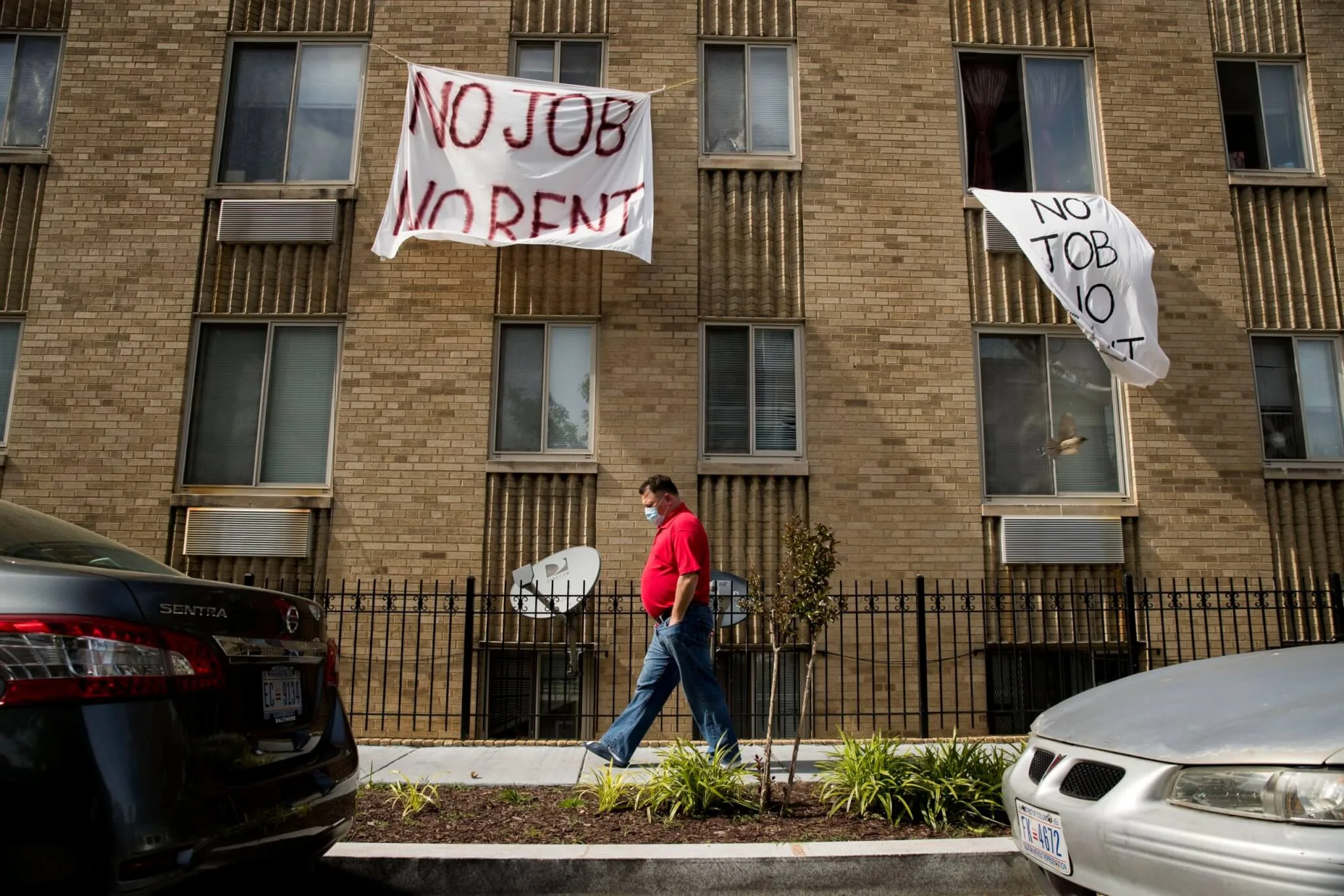
AP Photo/Andrew Harnik, File
Gov. Tom Wolf and state lawmakers are devoting at least $150 million in federal coronavirus emergency relief money for rental assistance of $750 per month for up to six months.
HARRISBURG, Pa. (AP) — Federal emergency aid for renters in Pennsylvania hit hard financially during the pandemic is still in the pipeline as Gov. Tom Wolf’s ban on foreclosures and evictions nears an expiration.
The application period for aid begins Monday to the Pennsylvania Housing Finance Agency. Five days later, Wolf’s moratorium expires.
Robin Wiessman, the agency’s CEO, said Wednesday that it will take a few days to verify the information that must be submitted to qualify for aid.
Wolf and state lawmakers are devoting at least $150 million in federal coronavirus emergency relief money for rental assistance of $750 per month for up to six months.
Assistance is contingent on the renter losing their job after March 1, or seeing their income drop by at least 30% due to the pandemic. An eligible renter also must make less than median income in their county.
Landlords can apply, as well.
Another $25 million was set aside for mortgage assistance, while some counties or nonprofit organizations are helping process applications.
Sen. Vincent Hughes, D-Philadelphia, said Wolf’s eviction moratorium does not necessarily have to end after July 10, given the fact that new virus cases are surging across the country and Pennsylvania is seeing an uptick.
The administration plans to reexamine the order as July 10 gets closer, Wolf’s office said.
Still, Hughes and 19 other Senate Democrats on Wednesday wrote to Wolf to ask that he extend the moratorium until at least Aug. 31.
More time is needed to ensure that money reaches renters or landlords before the moratorium expires, they wrote.
“Any delay in receiving payments from the program could potentially lead to mortgage companies and landlords beginning the foreclosure or eviction process while an application for assistance is pending with a county or PHFA,” they wrote.
In the meantime, the Wolf administration has been fighting legal action by landlords who say the governor overstepped his authority.
Sen. Sharif Street, D-Philadelphia, said the possibility that eviction complaints filed in courts will take more time than usual to be heard because of a post-shutdown backlog on dockets is little comfort.
Some jurisdictions may not have a backlog, and an eviction complaint stays on a person’s record and makes it much more difficult for them to find housing, Street said.
Wolf’s ban on foreclosures and evictions does not cover a tenant who damages property, breaks the law or breaches the lease in some other way aside from nonpayment or overstaying a lease.
Still, property owners have complained that they will be hard-pressed to keep up with taxes, insurance, utilities, maintenance and mortgage payments without the ability to enforce lease agreements.
Member organizations, however, are not recommending that landlords pursue evictions for renters who are seeking emergency aid.
Rita Dallago, executive director of the Pennsylvania Residential Owners Association, said the number of renters who are unable to pay is undoubtedly higher than prepandemic figures, with some behind on rent going back to April or March.
“The applications do include verification from the landlord, so therefore the landlord will be aware that the tenant is applying for the funds, so that may forestall some evictions,” Dallago said. “It’s going to be on a case-by-case basis.”
But all of that is little comfort for landlords, some of whom need far more than $750 a month to cover their costs for a unit, but cannot ask tenants to make up the difference over $750, Dallago said.
Another big concern for landlords is the expiration of the $600-per-week federal supplement for anyone collecting state unemployment benefits.
The $600 federal unemployment benefit runs out at the end of July, and that could bring a new wave of tenants unable to make rent.
“It is a major concern,” Dallago said.
Politics

Influencers and creators find new ways to engage young Philadelphia voters
Rec Philly, a space for creators and influencers, teamed up with Show Up Strong to get hundreds of young Philadelphia residents engaged in the...

New Biden rule protects privacy of women seeking abortions
Under the new rules, state officials and law enforcement cannot obtain medical records related to lawful reproductive health care with the goal of...

Biden marks Earth Day by announcing $7 billion in solar grants
The Biden administration on Monday announced the recipients of its Solar For All Program, a $7 billion climate program that aims to lower energy...
Local News

Conjoined twins from Berks County die at age 62
Conjoined twins Lori and George Schappell, who pursued separate careers, interests and relationships during lives that defied medical expectations,...

Railroad agrees to $600 million settlement for fiery Ohio derailment, residents fear it’s not enough
Norfolk Southern has agreed to pay $600 million in a class-action lawsuit settlement for a fiery train derailment in February 2023 in eastern Ohio,...





